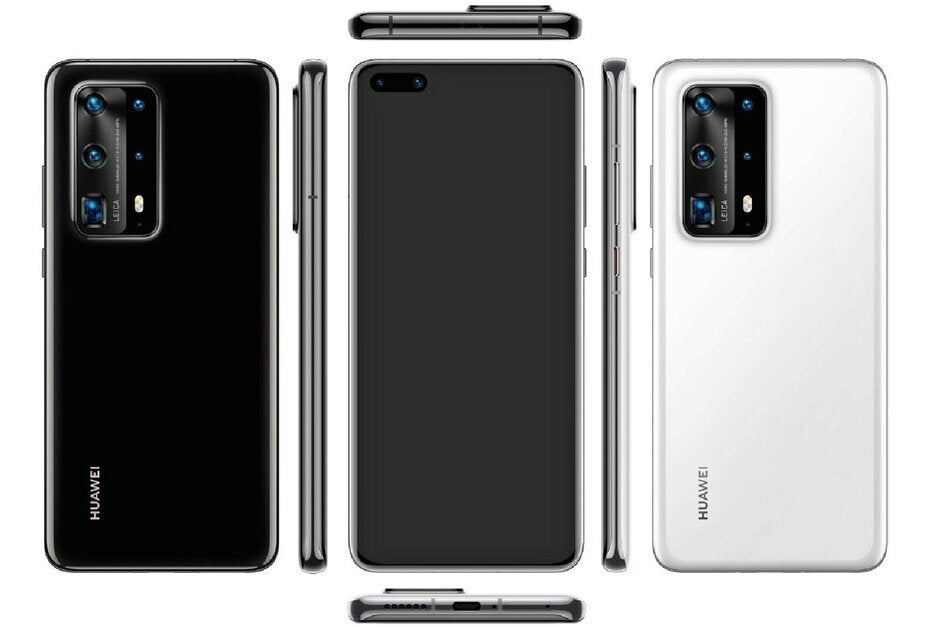Huawei's ecosystem is thriving

When the U.S. Commerce Department put Huawei on the Entity List last year, it meant that the company would be unable to access its U.S supply chain which it spent $18 billion on in 2018. It also meant that Huawei could no longer license the Google Mobile Services version of Android. That meant that Google's Android apps like the Play Store, Search, YouTube, Maps, Drive, and Gmail could not run on Huawei's phones. In China, that doesn't matter since most Google apps are banned in the country anyway. But consumers in other countries used to buying Huawei's international models surely wouldn't be happy paying big bucks for a high-end handset without a proper mobile ecosystem.
Huawei has 700 million device users using its ecosystem
Yesterday, the Chinese manufacturer revealed the latest data related to the Huawei Mobile Services (HMS) Ecosystem during the 19th China Internet Conference. The HMS Ecosystem now reaches 700 million Huawei Device users, up 32% year-over year. Growing at even a faster pace is the number of developers registered with the company; that figure has now hit 1.6 million up 76% on an annual basis.

The Huawei P40 Pro launched this year with Huawei Mobile Service included
Zhang Ping’an, President of Consumer Cloud Service, Huawei Consumer Business Group, said, "AppGallery, Huawei's official app distribution platform, covers more than 170 countries and regions. With this coverage, we hope to share local digital innovation with the world. We want every innovative app developed by global partners to reach all 700 million Huawei device users." The company also noted that global Huawei Mobile Service apps such as Huawei Video, Huawei Music and Huaei Reader "have brought high-quality services and content to consumers in more countries and regions."
Back in May we told you about an interesting app developed by Huawei called Petal Search. With the latter, Huawei users can type in the name of an app. If it is not available in the company's AppGallery, Petal Search scours third-party app stores until it finds one that hosts the app. A tap on the install button will download the software on the user's handset. Even apps like Amazon, Snapchat, Speedtest.net, and AccuWeather, all with U.S. developers, can be installed on a recently released Huawei phone using Petal Search. And Huawei calls its Quick App "a new type of installation-free app, providing users with a tap-to-use experience and much less memory space." It sounds similar to Apple's App Clips coming in iOS 14, and Android's Instant Apps.
The U.S. considers Huawei to be a national security threat because of its perceived ties to the communist Chinese government. Despite its placement on the Entity List, Huawei moved up in the global rankings to become the second largest smartphone manufacturer in the world last year. The company shipped 240 million units in 2019, up 17% for the year. For the first half of 2020, Huawei actually has a small lead over Samsung to be the top smartphone manufacturer in the world. But that might not last terribly long. A new export rule announced by the U.S. prevents global foundries that produce chips using U.S. technology to ship semiconductors to Huawei without obtaining a license. The latter is requested from the U.S. Commerce Department. The new rule takes effect on September 15th.
Huawei will have a problem if it can't somehow find a replacement for TSMC; the foundry is one of only two that will churn out cutting edge 5nm chips this year. Huawei is expected to receive its first 5nm chip, the Kirin 1020, from TSMC until the new export rule kicks in. We could see the component used to power the Huawei Mate 40 series, the manufacturer's most technologically advanced phone for 2020; the line is due out during the fourth quarter. The chips are also used to drive Huawei's 5G base stations; the company is the top supplier of networking equipment in the world.
Follow us on Google News












Things that are NOT allowed:
To help keep our community safe and free from spam, we apply temporary limits to newly created accounts: